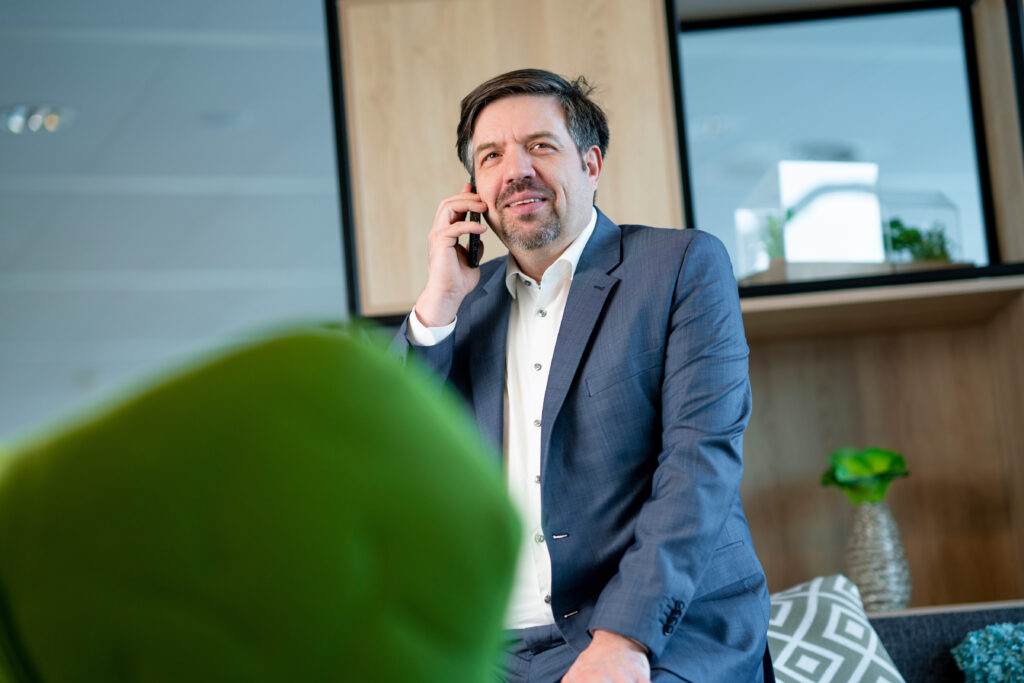Partly thanks to the transfer of the post-shredder technology (PST) plant to the market in March 2020, the way has been cleared for ARN to fully focus on its core task: improving recycling performance. “I see it as a key challenge for us to become more externally oriented as an organisation,” assures Dietz. “In 2022, we made a point of strengthening our ties with the chain, particularly with importers and car-dismantling companies.”
The transfer of the PST factory to a market partner went well. “But it took some getting used to that we no longer face our immediate colleagues across the table,” he concedes. “What’s more, it has also become more business-like, which was quite different for both parties in the beginning. But we now work really well together in the new arrangement and there is a lot of mutual trust.”

Make quality dismantling the norm
“When I took office, I visited a few dozen companies,” continues Dietz. “And some common threads emerged from discussions I had with them. The importance of a ‘level playing field’ was often mentioned by the car-dismantling companies, for example. And importers regularly enquired about the quality of dismantling throughout the market. Together with the RDW, RAI Vereniging, BOVAG, Stiba and the Netherlands Ministry of Infrastructure and Water Management, we explored how to approach this. We’d like to make Quality Care Dismantling part of the RDW’s accreditation scheme, for example. This would make it more difficult for dismantling companies that do not comply with sustainable car-dismantling regulations to compete on price with companies that do. Companies that cannot or will not comply will then simply be excluded from participation. I expect this to be a promising solution to at least part of the problem. The ministry has responded positively to our initiative, which is an excellent example of a simple yet overarching solution to a common objective.”
“With ARN as implementing organisation, the Netherlands is at the forefront of vehicle recycling”
Paul Dietz, Managing Director ARN
ARN has clear rules
“With ARN as implementing organisation, the Netherlands is at the forefront of vehicle recycling,” insists Dietz. ARN has a professional network in which all importers participate, it has the use of a unique factory and, as a chain, achieves excellent recycling figures. “This is something we can all be proud of, but it doesn’t mean that we can rest on our laurels.”
From 2023, new EU obligations will apply to car batteries and from 2024 to the recycling of end-of-life vehicles. This means that the rules that constitute the basis of ARN’s activities will change. “To keep carrying out these activities properly, ARN needs to have clear regulations. To this end, wherever possible we provide policymakers with the correct practical information. It’s still unclear what the new regulations are to be, but what we do know is that the requirements for high-quality recycling and reuse will be tightened. Furthermore, the European Commission is mulling over whether the recycling of two-wheelers and trucks should also be subject to them. The Netherlands has already built up a network for scooters, with the voluntary initiative of Scooter Recycling Nederland, and with ARN being responsible for its implementation.”
Battery portal
When it comes to car batteries, ARN intends to do more itself during the coming year. The number of batteries and battery modules registered for collection is doubling every year. Fortunately, further digitalisation is generating correspondingly smart solutions. Work is ongoing, for example, to expand the online battery portal in which, based on the car’s registration, all battery data will be available. The numbers of hybrid and electric cars on the Netherlands’ roads are rapidly increasing. This makes the services for the collection and recycling of batteries that ARN makes available to importers, retail organisations and car-dismantling companies an important point of attention. “At ARN we have the right people to work on the recycling of vehicles and car batteries. Together with all our partners, we are contributing to a better world.”
Lees hier over de sustainable development goals (SDG’s) die voor ARN de leidraad vormen voor het bereiken van de recyclingprestaties.